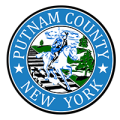
Personnel Department
PUBLIC HEALTH SANITARIAN
DISTINGUISHING FEATURES OF THE CLASS: This is professional environmental health work, involving non‑engineering aspects of environmental control, including investigation and inspection. An employee in this class applies the principles of the physical, biological and social sciences for the detection, evaluation, control and management of those factors in the environment which influence human health. Responsibilities include planning, supervising and implementing multiple environmental health programs. Sanitarian differs from Trainee in that Sanitarian possesses certification as a New York State Food Service Inspection Officer I or II (FSIO 1 or 2), has completed the New York State Department of Health (NYSDOH) required public health course, and is proven competent to independently perform inspections and investigations. Work is performed under general supervision of a higher-level Sanitarian. Supervision of lower-level staff is not typically a responsibility. Performs related work as required.
TYPICAL WORK ACTIVITIES: (Illustrative only)
- Independently performs inspections and investigations of food service establishments, mobile food services, children’s camps, swimming pools, bathing beaches, tanning salons, temporary residences, body modification/tattoo parlors, campgrounds, public water supplies, and day cares to ensure compliance with applicable codes, laws, and regulations;
- Independently performs investigations of suspected rabies cases, animal bites/exposures to prevent infection and spread of rabies;
- Independently performs investigations and collects samples with relation to food borne outbreaks;
- Collects and prepares specimens for laboratory testing;
- Conducts compliance checks of facilities for tobacco, in accordance with the Adolescent Tobacco Use Prevention Act (ATUPA);
- Independently performs investigations and collects samples with relation to insect borne disease including but not limited to Lyme’s disease, West Nile, and Zika;
- May apply pesticides to prevent insect borne disease including but not limited to Lyme’s disease, West Nile, and Zika;
- Responds to complaints and conducts investigations regarding sewage, septic systems, air quality, hazardous materials, and oil spills;
- Prepares reports of investigation and inspection findings;
- Enters data into the New York State Department of Health (NYSDOH) online Environmental Health Inspections and Permitting System (eHips) and United States Environmental Protection Agency (EPA)’s Safe Drinking Water Information System (SDWIS) as required;
- Processes permit applications and maintains records and files for regulated facilities;
- Receives and responds to complaints, and maintains records and files of complaints/resolutions;
- Reviews and approves non-engineering plans for permitted facilities including but not limited to restaurants and children’s camps;
- Performs or assists with lead investigations and service requests;
- Interprets laboratory reports and bacteriological analysis;
- Prepares for and testifies at enforcement proceedings;
- Performs a variety of related activities as required.
Typical Work Activities are intended only as illustrations of possible types of work that might be appropriately assigned to an incumbent of this title. Work activities that do not appear above are not excluded as appropriate work assignments, as long as they can be reasonably understood to be within the logical limits of the job.
FULL PERFORMANCE KNOWLEDGE, SKILLS, ABILITIES AND PERSONAL CHARACTERISTICS: Good knowledge of environmental health practices; good knowledge of laws pertaining to the inspection of solid waste facilities, water supply and sewage disposal systems, food service establishments, temporary housing and other regulated facilities; working knowledge of the natural sciences; working knowledge of mathematics; ability to prepare and make concise reports; ability to explain legal provisions and environmental health practices; ability to establish effective working relationships with a wide variety of people; ability to train others in environmental health inspection work; courtesy; tact.
MINIMUM QUALIFICATIONS*:
Bachelor’s degree with thirty (30) credit hours in natural sciences, of which no more than twelve (12) credit hours may be in applied sciences and completion of a maximum of two years as a Public Health Sanitarian Trainee.
PLEASE NOTE: Your degree must have been awarded by a college or university accredited by a regional, national, or specialized agency recognized as an accrediting agency by the U.S. Department of Education/U.S. Secretary of Education.
SPECIAL REQUIREMENTS:
- Incumbents must have completed a public health training course approved by the NYSDOH prior to appointment.
- Certification as a New York State Food Service Inspection Officer I (FSIO 1) is required at time of appointment.
- Certifications in other areas may be required, including but not limited to:
- EPA Lead Risk Assessor certification
- New York State Department of Environmental Conservation
- Possession of a valid license to operate a motor vehicle in the State of New York at time of appointment.
*Per New York Codes, Rules and Regulations (NYCRR), Title 10, Part 11, §11.111.
8/81; 7/87; 5/89; 12/99; 4/06; 1/09; 8/10; 10/16; 3/21
Competitive Class
Other Positions
Contact Us
Mission Statement
Our mission is to administer, in a fair and equitable manner, the provisions of New York State Civil Service Law and Putnam County Civil Service Rules with respect to the offices and employments in the classified service of Putnam County and the civil divisions therein, which include the towns, villages, school districts, libraries and special districts.
It is Putnam County Personnel Department’s responsibility to ensure Putnam County taxpayers of a public workforce qualified for their jobs pursuant to the principles of selection according to merit and fitness as set forth in Article 5, §6 of the New York State Constitution.

-
Paul Eldridge
Personnel Officer